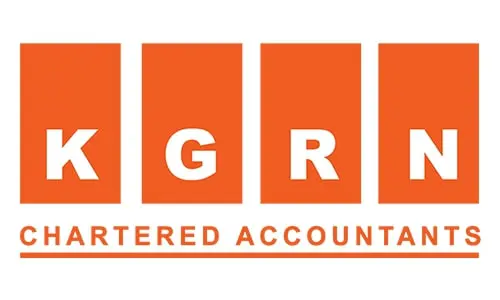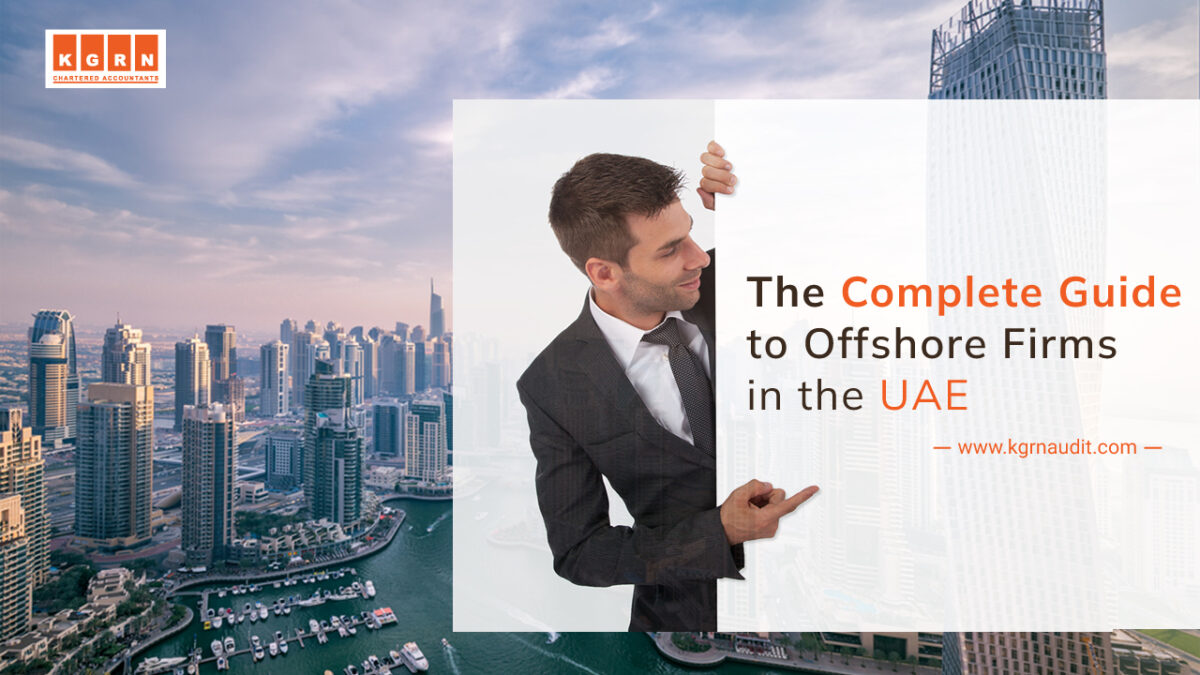With offshore firms, a lot of financiers, major enterprises, and small startups are entering the United Arab Emirates.
3 Important Jurisdictions Providing Offshore Corporations In The UAE
Your choice of jurisdiction for the formation of your offshore entity will have no bearing on its success. Yet, what is a jurisdiction? A jurisdiction is a nation or territory where a certain court and legal structure are in charge. The United Arab Emirates (UAE) is a federation made up of seven distinct Emirates, each with its own judicial system. Only three of these states are permitted to offshore businesses to the United Arab Emirates. Let’s examine them more closely now:
RAK International Corporate Centre, a. (RAK ICC)
- One of the nearest countries to Dubai is Ras Al Khaimah (RAK), which is about an hour’s drive away. the UAE’s fastest-growing Emirates. The Ras al Khaimah government introduced the RAK ICC, a corporate registry for outsourcing businesses, in 2006. As a result, it was possible to establish International Business Companies (IBC) in the UAE. Several reasons support its reputation as one of the greatest in the UAE: There is no requirement for local shareholding in a RAK offshore business.
- Despite the general ban on doing business within the UAE, RAK offshore entities are permitted to purchase shares of national UAE businesses. Having a multi-currency offshore bank account in the UAE enables a RAK offshore firm to conduct standard worldwide business.
- You are not need to submit your annual audit report if you register an offshore company in RAK. An individual from the UAE who may assist you with the registration of your RAK offshore business is a registered agent. In other words, you don’t need to be physically present in the UAE to register a corporation. Within a week of application, RAK offshore firms are incorporated.
- Offshore businesses in RAK tend to be more economical. For your RAK offshore company to be incorporated, you will need a minimum of one shareholder and one director. Following a regulatory revision in 2019, RAK Offshore firms are now permitted to purchase property in the UAE even without a business licence.
The Jebel Ali Free Zone (JAFZA)
- A significant trading centre in Dubai, Jebel Ali is around an hour’s drive from Abu Dhabi.
- The UAE’s first such free zone was established as the Jebel Ali Free Zone (JAFZA).
- Nearly all of the characteristics of a RAK offshore company are shared by a JAFZA offshore company or a Jebel Ali offshore company.
- However a few variations include:
- Your firm can be established in the UAE’s primary commercial hub with the aid of a JAFZA offshore company creation.
- The cost of forming an offshore business in JAFZA is comparatively higher.
- To complete the offshore company incorporation process, a shareholder would need to go to the United Arab Emirates.
- The JAFZA authorities would need you to submit an annual audit report.
- A minimum of one shareholder, one secretary, and two directors are required for the incorporation of a JAFZA offshore business.
Ajman Free Zone
- It is located in the UAE’s Emirate of Ajman, as suggested by the name. The offshore regime established by this UAE free zone allows you to incorporate your offshore business at affordable rates.
- Once more, the characteristics of an Ajman offshore company are comparable to those of a RAK offshore firm.
- Yet, it is a popular option in the corporate community due to the qualities described below.
- Ajman offshore businesses are relatively inexpensive and have small operational expense budgets.
- You may easily make any changes to the way your company is set up. For instance, you have a week to implement a change to a corporate shareholder.
- For offshore incorporation, these businesses need a minimum of one director and one shareholder. Moreover, a single person may serve as both a shareholder and a director.
There are 3 Requirements to Form an Offshore Company in the UAE
Now that you are fully informed about offshore companies in the UAE, the following is a list of the necessary conditions to be met in order to register an offshore company in the UAE:
1. Name of the Organization
The suffix “Limited or Ltd” must be present at the end of the name of your UAE offshore business to indicate that it is an offshore entity under UAE law.
2. Offshore Local Agent
The JAFZA Offshore Authority, RAK Offshore Authority, or Ajman Offshore Authority are some of the UAE Offshore authorities that register local offshore agents.
To finalise the incorporation of your UAE offshore business, you will need one of these registered agents. Unless it’s a JAFZA offshore corporation, in which case you must personally register the business.
3. Minimum Required Share Capital
- To establish an offshore corporation in the UAE, there is no minimum share capital required.
- After the Companies Law was changed in 2009, offshore businesses can now choose the share capital for their limited liability corporation. Naturally, they need sufficient funds to accomplish their goals.
- The UAE offshore authorities will also not request to see a specific quantity of money in your bank before forming your offshore firm.
- A respectable way to aid in the expansion of your business is to establish an offshore company in the UAE.
- You can take advantage of the lenient restrictions and prosper in a tax-free company environment. Offshore businesses are excellent for privacy and asset protection since they permit 100% foreign ownership.
But is creating an offshore corporation in the United Arab Emirates a wise economic decision?
Everything you need to know about setting up offshore firms in the UAE will be covered in this post. The benefits and drawbacks of forming an offshore business in the United Arab Emirates will be highlighted. We’ll also go over the essential components of an offshore UAE corporation and the fundamental needs to set one up.
How do Offshore Companies Work?
An offshore corporation refers to a legal entity engaged in business activities conducted outside the jurisdiction of its ultimate ownership.In order to leverage the available tax incentives and relaxed regulations, you decide to relocate your company’s operations to the aforementioned country.Frequently, offshore businesses are established in countries that have significantly low or nonexistent capital gains taxes.A recommended and cost-effective strategy for expanding your global business while minimizing administrative burdens is to establish an offshore company in the United Arab Emirates (UAE).
Three Important Elements Of An Offshore Business In The UAE
UAE offshore firms are excellent for taking advantage of global marketplaces. But first, it’s important to properly understand the various traits of an offshore corporate entity. You should be aware of the following three major factors regarding offshore businesses in the UAE:
1. Use of a business bank account
In the UAE, you can open corporate and private bank accounts for offshore businesses. In the UAE, opening an offshore bank account is a pretty simple process for managing personal assets or safeguarding a company’s business operations. If you want to use your offshore company to do worldwide business (outside of the UAE), this will be extremely important to the growth of your firm.
2. You must adhere to the Know Your Customer (KYC) procedure
The Know Your Customer (KYC) procedure is used by offshore businesses in the UAE. You must submit certain paperwork as part of the KYC procedure, including a copy of your passport, identification proof, a bank reference letter, and investor biographical information. These documents must be turned in to the officials of the offshore jurisdiction you select. This aids in tracking unethical activities including money laundering, financial fraud, and identity theft as well as bank laws for investors.
3. Offers Beneficiaries for Jurisdiction
Only three UAE jurisdictions are able to support the incorporation of an offshore business in a certain Emirate of the UAE. Each offshore jurisdiction offers unique benefits appropriate for various business kinds. Because of this, it’s essential to research every offshore jurisdiction before deciding which is best for your company.
5 Advantages of Establishing an Offshore Business in the UAE
Creating an offshore corporation in the UAE has the following benefits:
1. Expansion of the Global Market
You might be able to extend your international business in a cost-effective way by establishing an offshore corporation in the UAE. Without investing in an expensive physical infrastructure in Dubai, it is possible to have an offshore corporation there on paper. New international agreements and partnerships might result from this. You can also conduct transactions in many currencies using a single UAE bank account. This will help you navigate currency conversion rates and reduce transaction expenses.
2. Commercial Anonymity
You can get great confidentiality and low liability from offshore firms in the UAE. Your company’s financial data or ownership information wouldn’t need to be made public in any way. Except in cases where the offshore business in issue is suspected of criminal activity, such sensitive information is never disclosed to a third party.
3. A Variety of Tax Benefits
Tax evasion and tax avoidance are two entirely distinct concepts. Also, forming offshore corporations in the UAE is a legal technique to reduce (not avoid) taxes. You might avoid paying a number of taxes by setting up an offshore business in the UAE, including corporate tax, income tax, sales tax, inheritance tax, property tax, and personal tax. The terrible “double taxation” practise could also be avoided. You won’t be paying the same tax twice to another country if you do international business out of the UAE. UAE had agreements to prevent double taxation with 117 nations as of 2021. Offshore enterprises with headquarters in the UAE will also save a tonne of money because the UAE has low taxes.
4. Easier Processes
Throughout the entire world, the UAE has some of the best company setting circumstances. An offshore corporation is immune from auditing every year in addition to taxes. As a result, practically all of the United Arab Emirates do not need you to file audited financial accounts.
5. Obtain Better Global Financing
Globally, the UAE offshore scene is well-positioned. Any potential overseas investor would think highly of your company given its illustrious reputation. Also, the energetic economic climate in the UAE right now will assist your firm succeed. The economy of the nation is recovering from the pandemic-related slump. In 2021, a consistent 2.5% growth is anticipated.
The UAE’s 5 Offshore Firm Operating Issues
UAE offshore corporations have two sides to their swords. Although they have many benefits, they also have a number of drawbacks. Here are a few of them, shall we?
1. Inability to obtain a business licence
Offshore businesses in the UAE are also known as “paper” businesses. Wholly foreign-owned limited liability companies are considered offshore entities. In contrast to an onshore corporation, it does not get a business or trade licence to engage in any commercial activity within the UAE. In the UAE, it is illegal to operate without a company licence.
A few of them are shown below:
- The UAE prohibits offshore corporations from engaging in any profitable commercial activity. They are frequently utilised as holding companies as a result.
- UAE offshore businesses are not allowed to do business with UAE citizens. This suggests that they are unable to hire employees within the UAE.
- Not to be confused with a free zone company is an offshore corporation. In some of the UAE’s free trade zone regions, the latter receives a company licence.
2. Few Real Estate Purchase Options
Owning property in the Middle East is a lucrative business. The gross rental return averages just over 7%. Office space and other real estate assets can be purchased by offshore businesses in the name of their organisations. Nevertheless, this is only permitted in the two UAE jurisdictions of Jebel Ali Free Zone and RAK International Corporate Centre. In the part that follows, we’ll go into further detail on this.
3. Limited Use Outside Of The UAE
Offshore corporations are limited to a few commercial activities for the operations they conduct outside of the UAE. Only onshore companies are permitted to operate certain businesses. Here is how this is broken down:
Activities That An Offshore Firm May Conduct: International Trade Holding Intellectual Property (“IP”) Holding Shipping Business Internet Advertising General Trading Distribution And Service Center Business B. Companies That An Offshore Firm Cannot Participate In Doing Business With Firms in the UAE in the areas of insurance, media, and aviation
4. Relatively Pricey in Relation to Other Tax Havens
Prices are extremely competitive now that there are numerous international sites serving the outsourcing business.






